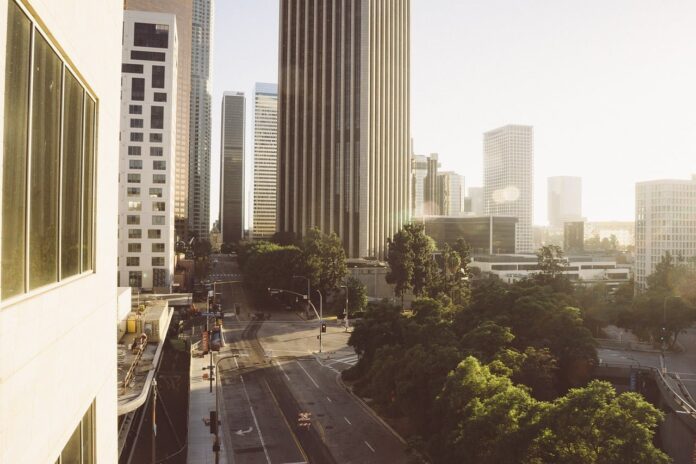Urbanization has become one of the defining trends of the 21st century, with more than half of the world’s population now living in cities. This mass migration to urban areas has brought about unprecedented economic growth and opportunities. However, it has also led to significant environmental challenges, including air pollution, resource depletion, and loss of biodiversity. The transformation from smog-filled cities to sustainable urban environments is not just a desirable goal but an essential one for the health and well-being of millions of people and the planet itself. This article explores the journey from the smoggy past of urbanization to the green future of sustainable city living.
The Smoggy Past: Understanding the Ecological Impact of Urbanization
The rapid expansion of cities during the industrial revolution marked the beginning of a smoggy era. Factories and vehicles powered by fossil fuels emitted vast quantities of pollutants into the air, leading to the infamous smog events that plagued cities like London and Los Angeles. The ecological impact was profound: air quality deteriorated, water sources became contaminated, and green spaces were lost to concrete and asphalt. The health implications for urban residents were severe, with increases in respiratory diseases, heart conditions, and overall mortality rates.
Urbanization also led to a spike in energy consumption and waste production. Cities became heat islands, with temperatures several degrees higher than surrounding rural areas, exacerbating the demand for energy-intensive air conditioning. The loss of permeable surfaces due to urban sprawl increased the risk of flooding, while the destruction of natural habitats threatened local wildlife. The ecological footprint of cities expanded far beyond their physical borders, affecting global ecosystems and contributing to climate change.
Greening the Concrete Jungle: Strategies for Sustainable Urban Development
In response to these challenges, urban planners and environmentalists have been working on strategies to green the concrete jungle. One key approach is the integration of green spaces within urban areas. Parks, green roofs, and vertical gardens not only improve air quality but also provide habitats for wildlife and recreational spaces for residents. Urban agriculture initiatives, such as community gardens and rooftop farms, contribute to local food security and reduce the carbon footprint associated with food transportation.
Sustainable urban development also focuses on improving public transportation systems to reduce reliance on private vehicles. Investments in buses, trains, and bike lanes encourage residents to opt for lower-emission modes of transport. Additionally, the adoption of smart growth principles, which promote compact, walkable communities with mixed-use developments, can significantly reduce the ecological impact of urban living.
Innovative Solutions: Technology and Policy in the Fight Against Urban Pollution
Technological innovation plays a crucial role in the fight against urban pollution. Advances in renewable energy technologies, such as solar panels and wind turbines, are making it possible for cities to reduce their dependence on fossil fuels. Electric vehicles (EVs) and charging infrastructure are becoming more prevalent, further decreasing urban emissions. Smart city technologies, including sensor networks and data analytics, enable more efficient management of resources and services, leading to reduced waste and energy consumption.
Policy interventions are equally important in driving urban sustainability. Governments around the world are implementing regulations to limit emissions from industries and vehicles. Incentives for green building practices and renewable energy adoption are becoming more common. Environmental education and community engagement initiatives are raising awareness and fostering a culture of sustainability among urban residents.
Case Studies: Global Success Stories in Urban Ecological Transformation
There are numerous global success stories that showcase the potential for urban ecological transformation. Copenhagen, Denmark, is often cited as a leading example of a sustainable city, with its extensive bike lanes, renewable energy production, and ambitious goal to become carbon neutral by 2025. Singapore’s integration of green spaces into its urban fabric, including the iconic Gardens by the Bay, has earned it the nickname “City in a Garden.”
Curitiba, Brazil, has been recognized for its innovative public transportation system and urban planning, which have significantly improved the city’s environmental performance. In Asia, Seoul, South Korea, transformed an elevated highway into the Cheonggyecheon Stream, a public park that has revitalized the city center and improved local air quality. These case studies demonstrate that with the right combination of vision, policy, and community engagement, cities can overcome ecological barriers and become models of sustainability.
The Road Ahead: Fostering Resilient and Sustainable Cities for the Future
The road ahead for urban environments is one of both challenges and opportunities. Climate change, population growth, and resource constraints will continue to test the resilience of cities. However, the growing recognition of the importance of sustainable development, coupled with technological advancements, provides a pathway to a greener urban future.
To foster resilient and sustainable cities, stakeholders must prioritize long-term planning and investment in infrastructure that supports ecological health. Collaboration between governments, businesses, and civil society is essential to drive systemic change. Education and empowerment of urban residents will ensure that sustainability efforts are inclusive and effective.
The transition from smog to sustainability is not only possible but imperative for the future of urban living. By learning from the past, implementing strategic development plans, embracing innovative solutions, and celebrating global success stories, cities can overcome ecological barriers and pave the way for a sustainable and prosperous future for all.
